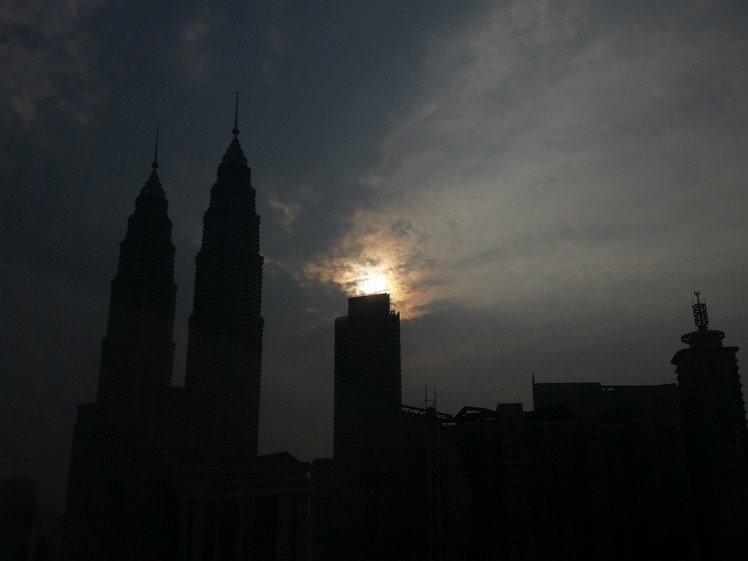Malaysia is currently facing some real challenges, over and above lower oil prices, the falling value of the ringgit, and a slowdown in the rate of economic growth. This has lead some expats to ask us whether this is a bump in the road or a more serious problem. The answer depends on who you talk to. We continue to be optimistic, but certainly some events are cause for concern.
The recent arrests of over 100 people who were willing to either join Islamic State or support them through terrorist acts in Malaysia had many expats worried. Fortunately, so far the Malaysian police have shown themselves to be very efficient at countering terrorism.
The efforts by the opposition party, PAS, to introduce strict sharia law including amputations and stoning to death was strongly opposed by most expats we talked to. Even though PAS stated it would only apply to Muslims, many people questioned how long it would be before they extended it to non-Muslims. This fundamentalist segment has also been getting a lot of publicity for trying to place greater restrictions in a number of areas ranging from live pop concerts to the clothes worn by Malay female gymnasts. For some reason, they did not make the same fuss about the tiny outfits worn by male Malay bodybuilders.
The fact that the government seems reluctant to openly state their opposition to these proposals caused some concern among expats. There is little doubt that if Malaysia makes a clear shift towards more fundamentalist Islam, the country will see a fall off in foreign investment and tourism, as well as less interest in the Malaysia My Second Home programme.
It should be noted that every time these radical views are expressed, large numbers of Malaysian Muslims voice their opposition to them on social media. The G25, a group of prominent Malays, mostly retired senior civil servants, have been active in articulating their concerns about what they see as increasing Islamisation in Malaysia, which they are convinced will be detrimental for the country.
The political scene has been equally turbulent and has some expats worried about which direction the country is heading. Former Prime Minister Tun Mahathir has been waging a war of words against the current Prime Minister, Najib Razak, and is determined to see him step down. Tun Mahathir firmly believes the party will lose the next general election, scheduled for 2018, if Najib remains as leader of the party. Both gentlemen have their own group of powerful supporters and it is not yet clear who will emerge the victor.
The 1MDB scandal receives daily coverage in social and mainstream media. Questions and answers fly back and forth, with critics claiming the answers do not adequately address the questions asked, and the government and 1MDB insisting they have adequately responded. Hopefully the audits currently being conducted of 1MDB will be able to provide answers which satisfy everyone.
Despite these problems, the Malaysian economy is still growing, albeit more slowly now. Prime Minister Najib’s highly ambitious Government and Economic Transformation programmes have shown real progress and the country seems on target to achieve many of its 2020 goals.
In truth, Malaysia’s problems are not unique. Many countries contend with racial issues and business scandals, and of course political acrimony is par for the course. Malaysia’s economic growth is the envy of many countries and the continuous infrastructural improvements are evident to regularly visiting the country.
Malaysia has faced significant issues before and pundits who predicted doom and gloom were proven wrong. We continue to be optimistic about the long-term outlook, but hope the government will take a firmer position regarding any tendency to move away from being a moderate Muslim country and will work hard to ensure it retains its positive image as an inclusive, multiracial, multicultural society.
Read more about the latest 1MDB news here.
Read This: A Brief Look at the Progress Malaysia and Singapore Achieved from Former Leaders
Source: The Expat magazine July 2015
"ExpatGo welcomes and encourages comments, input, and divergent opinions. However, we kindly request that you use suitable language in your comments, and refrain from any sort of personal attack, hate speech, or disparaging rhetoric. Comments not in line with this are subject to removal from the site. "






















I am an MM2H holder and under the terms of the visa we are not allowed to get involved with politics. However i will say that most are very worried now and are eying up alternatives for the future.
I won’t comment , only to say this whole thing is so sad, things could have been so much better for all ! if only there was’nt so much regressive religious thinking !
It is still a young country.. compared to others it’s done a good job so far.While EU unfolds, And austerity increases,, we don’t need outside interference or criticism. Malay is a multi ethnic society,,,will be fine
Natural reaction of a country trying to cope with the pace of social and economic change. Anyone who tries to apply values formulated externally is at risk of inappropriate bias. UK allows the media to dictate opinion and is busy dismantling the welfare state. The gap between rich and poor widens at a dramatic rate. UK is not in a strong position to preach tolerance.
Prepare for the next ‘darurat’, a repeat of racial tension happened 1969. Only difference is this time it will be a political tension among the members in D-UMNO.
What does sharia mean?
Fundamentalism and corruption is far from growing pains, it is regression and certainly not the face of a country embracing the 21st century.
With the current corrupt govt in power and a constant decline in economic wealth, I’m leaning towards “we’re screwed”
Wendy Paine-Young
Growing pains….